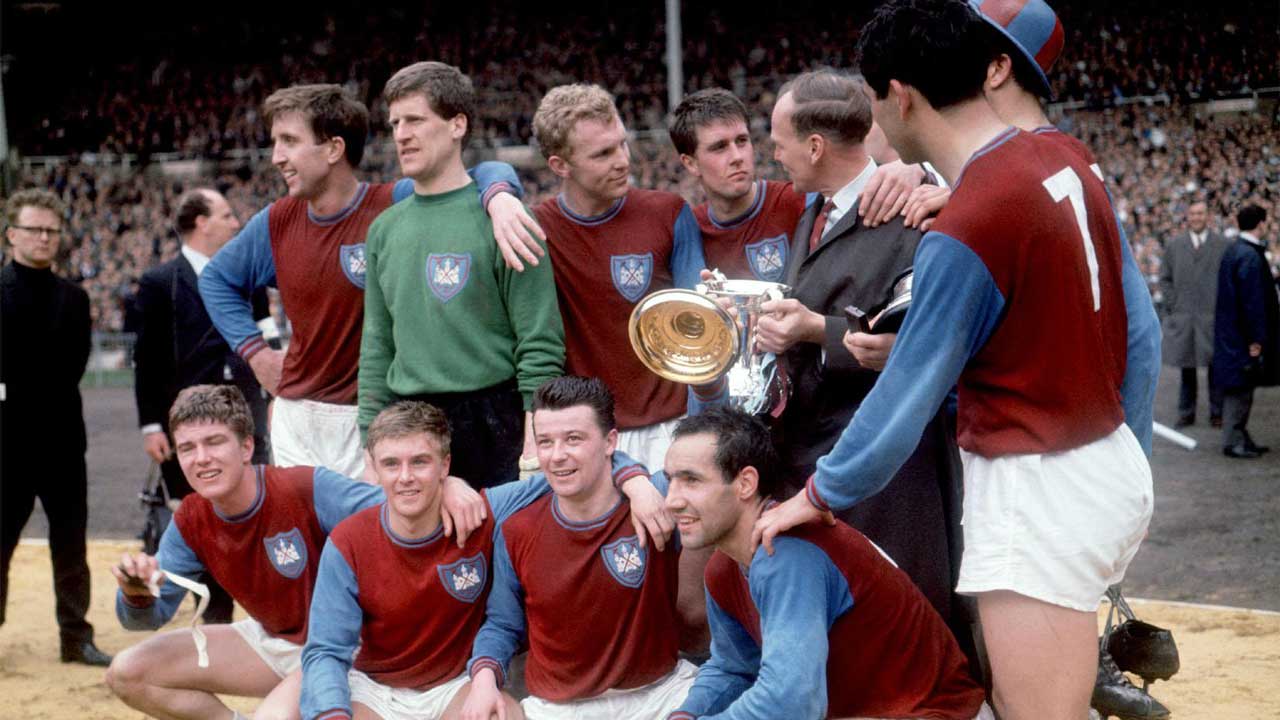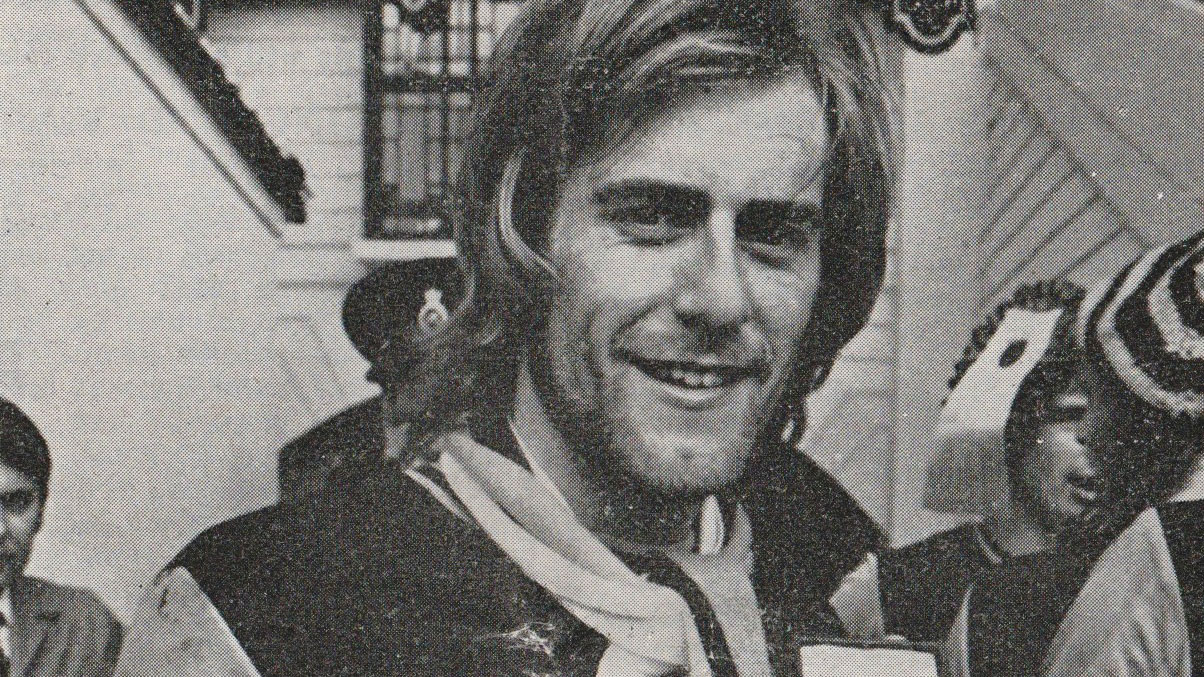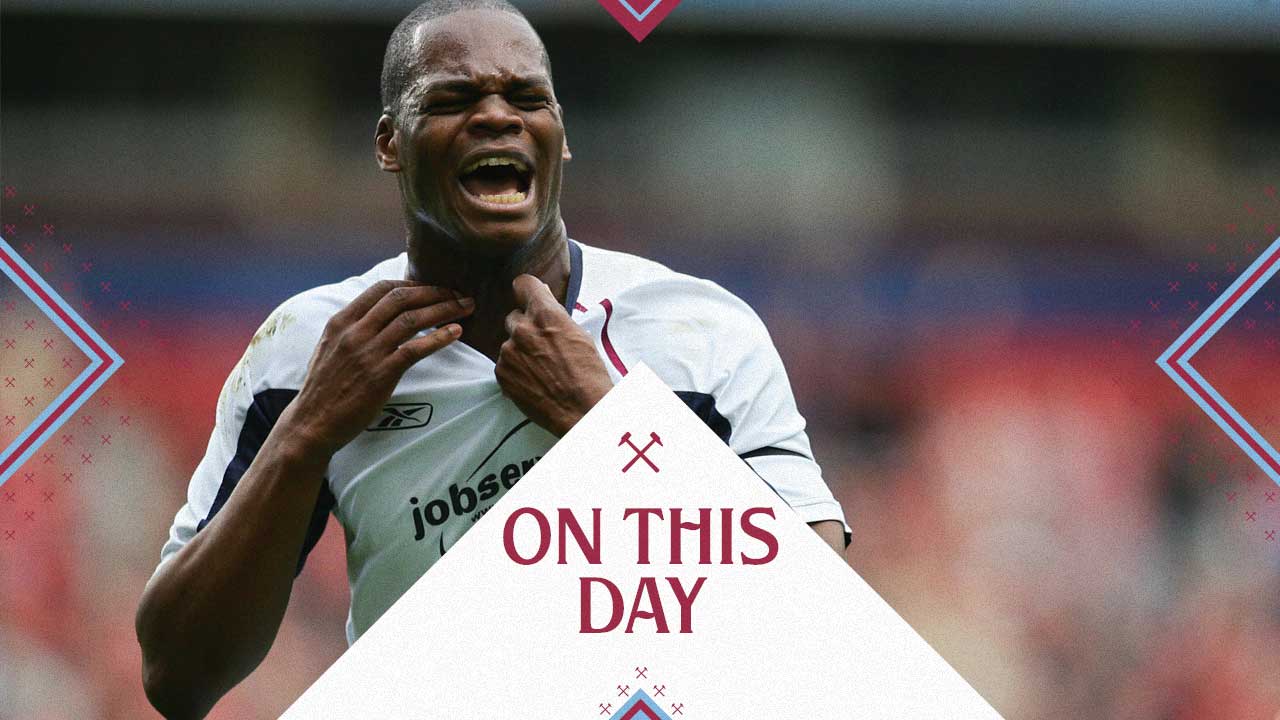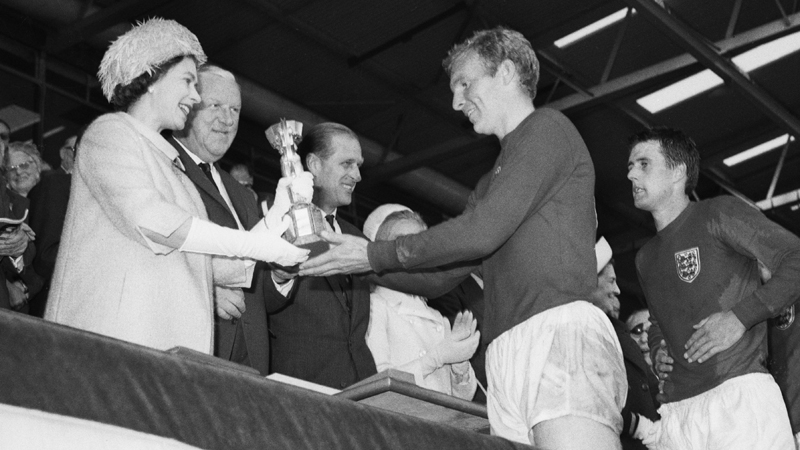Sixty years ago today, West Ham United captain Bobby Moore led his team up the famous steps to the Royal Box at Wembley Stadium before raising the FA Cup aloft.
The date was Saturday 2 May 1964 and, after 69 years of trying, the Hammers’ long wait for a major trophy was over.
The Irons had gone close before, most notably in 1923, when they were beaten 2-0 by Bolton Wanderers in the first final held at the newly-built Home of Football, as it has come to be known, but this time they would not be denied.
That said, the First Division Irons needed to come from behind on two occasions to level the showpiece with Second Division Preston North End before homegrown midfielder Ronnie Boyce's last-minute winner ensured Ron Greenwood, his players and 50,000 Claret and Blue-clad supporters were celebrating when referee Arthur Holland blew his full-time whistle moments later.
That glorious moment looked unlikely when Preston opened the scoring inside ten minutes. Howard Kendall – at 17 the youngest player to appear in an FA Cup final and a future star midfielder and manager for Everton – started a move that was finished by Doug Holden after Jim Standen had failed to hold Alex Dawson's initial shot.
The Hammers hit straight back when Johnny Byrne fed John Sissons and the young winger, himself only 18, scored with a cross-shot.
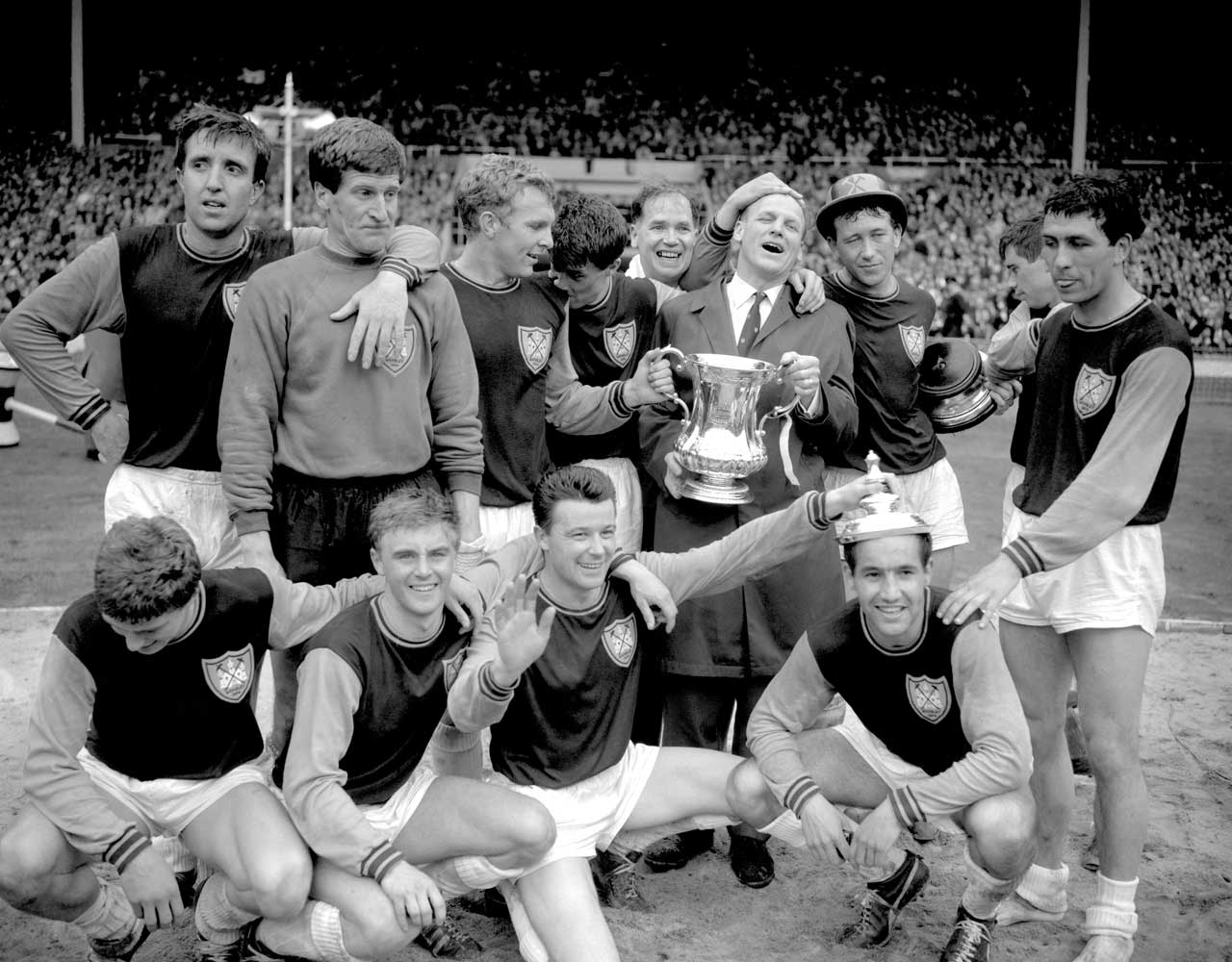
England centre-forward Byrne then missed a great opportunity to put the east Londoners in front and five minutes before the break Preston restored their advantage thanks to a powerful header from the prolific Dawson.
However, Greenwood’s men replied again seven minutes into the second half when Byrne’s strike partner Geoff Hurst's header hit the underside of Alan Kelly’s crossbar and bounced down, hit the North End goalkeeper and rolled into the net to make it 2-2. Unlike Hurst’s shot for England in the FIFA World Cup final two years later, there was no question whether his effort had crossed the line.
As the final wore on and legs became tired on the big Wembley pitch, it became ever more clear that the next goal would be all-important and, with just seconds of normal time remaining, the Hammers scored it. Hurst rode several tackles before finding Peter Brabrook – socks rolled down around his ankles – wide on the right and the winger sent over a cross that the onrushing Boyce met perfectly to nod back past Kelly and into the Preston net.
Boyce leapt into the air, two arms raised, while Byrne did two forward rolls in jubilant celebration before embracing Sissons.
When referee Holland blew for full-time, West Ham United had won the FA Cup for the first time in their history.
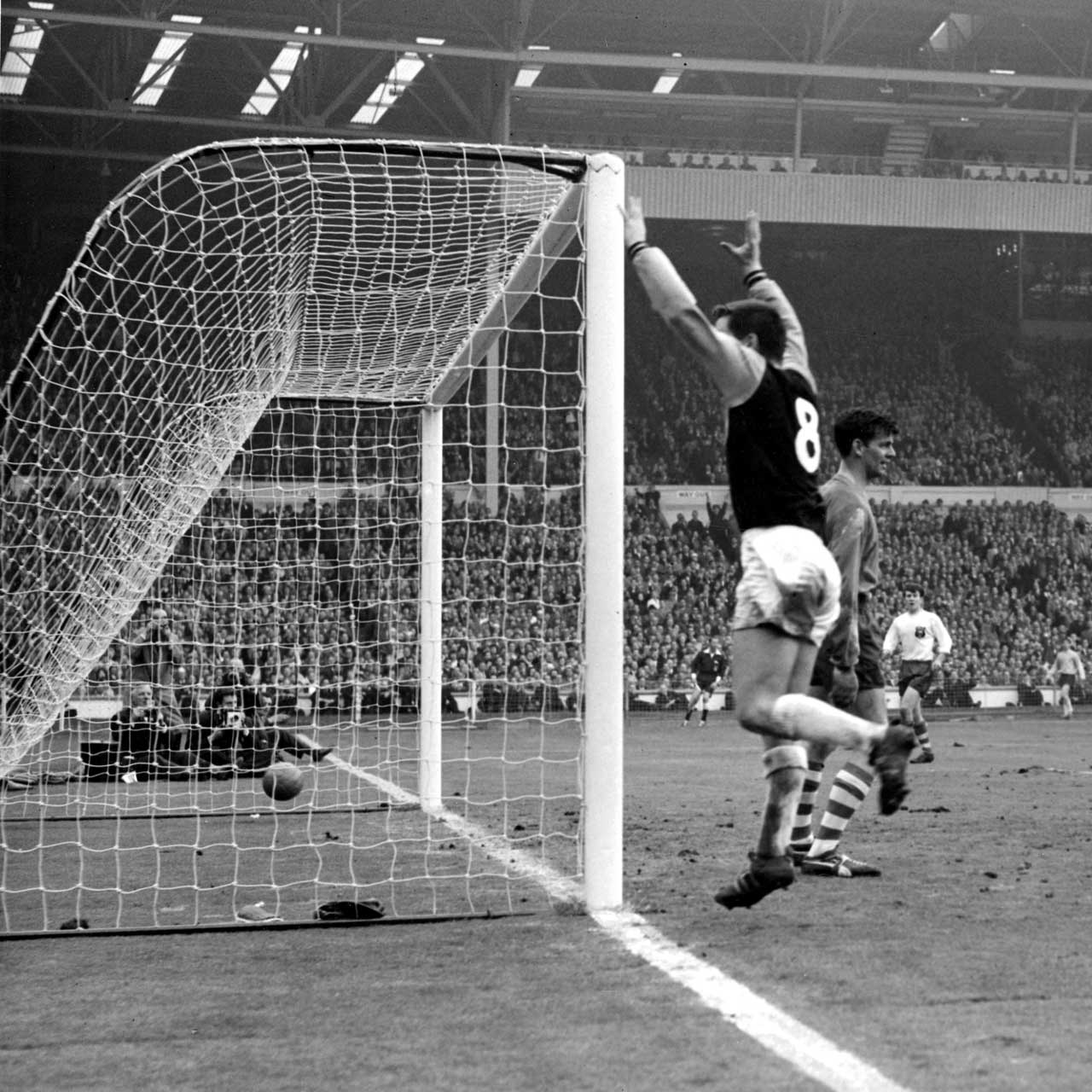
Captain Moore led his team up to the Royal Box before the Hammers players, led by Ken Brown carrying a giant papier-mâché Hammer, and fans partied like they never had before.
The following day, hundreds of thousands lined the streets of east London to welcome their heroes home as they rode an open-top bus along Barking Road.
It would be the start of a golden period that saw the Hammers win the European Cup Winners’ Cup in 1965 and reach the League Cup final in 1966 – the same year three of Greenwood’s squad, Moore, Hurst and Martin Peters, combined to inspire England to World Cup glory.
Six decades on, seven members of West Ham’s FA Cup-winning side are still alive and celebrating the 60th anniversary of their history success – Boyce, Brown, Hurst, Sissons, full-back Jack Burkett, midfielder Eddie Bovington and goalkeeper Jim Standen.
Here, six of those seven reflect on the May afternoon they shone in the Wembley sunshine…
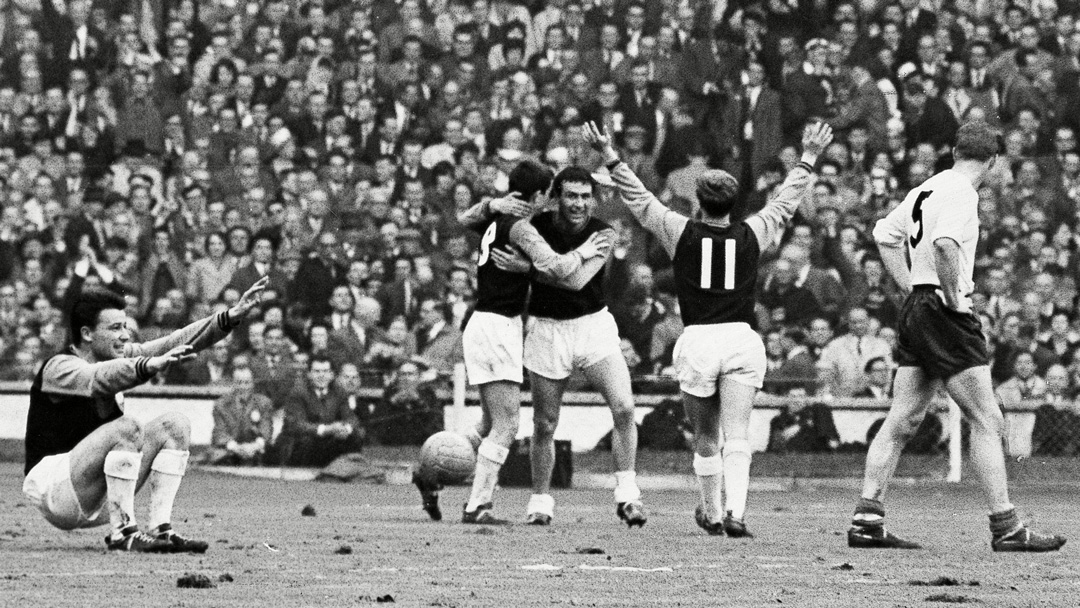
RONNIE BOYCE
The tireless East Ham-born midfielder, nicknamed ‘Ticker’, spent his entire career with West Ham United, making 341 appearances between 1959-72. He was on the coaching staff under manager John Lyall as the Hammers won the FA Cup again in 1975 and 1980, and worked as chief scout for Billy Bonds and Harry Redknapp…
I’d made my league debut against Preston and now, three years seasons later, we were facing them in the FA Cup final. Back in May 1964, people were talking about Howard Kendall – at 17 years and 345 days – being the youngest-ever player to feature in a Wembley final but John Sissons was still only 18, while I was just 21 myself.
After our semi-final victory over Manchester United, things were starting to come together for us as a team and, although we were expected to beat second-tier Preston, we knew they wouldn’t be pushovers. Indeed, it looked like we were going into extra-time. Then, going into the final few seconds of injury time, I met Peter Brabrook’s cross with an angled header that gave us a thrilling, late 3-2 victory.
Monte Fresco – a well-known sports photographer of his time – was sitting in the perfect spot to capture the moment when I ran off behind the goal to celebrate. Even today, I still don’t know why I went that way, while my wife Dawn was so far away that she didn’t even realise that it was me who’d got our match-winner! It was an amazing feeling to know that my last-gasp goal had proved to be the decider.
We celebrated with a few beers and some bottles of milk (!) in the dressing room before heading off to the Hilton on Park Lane for our winners’ banquet, where quite a few people were clearly the worse for wear. I just seemed to spend the entire evening being kissed on the forehead by lots of happy strangers.
Nowadays, aged 81, I’m living in Norfolk with Dawn, who still looks after me so well. I always maintain that 1964 was a fantastic year – I scored the winning goal in an FA Cup final, passed my driving test, came of age at 21 and married Dawn, albeit she constantly tells me that it shouldn’t necessarily be in that order!
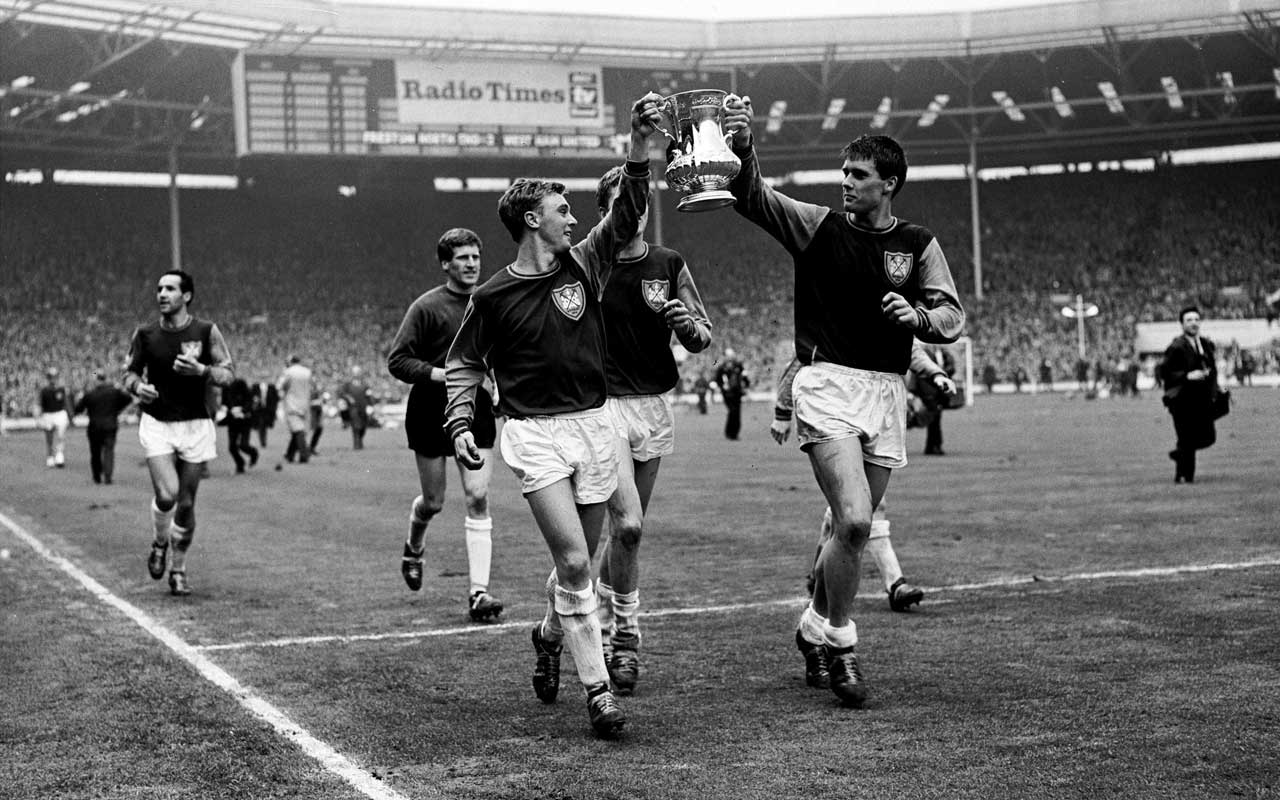
SIR GEOFF HURST
A true legend of the game, Sir Geoff Hurst came through the Academy of Football before scoring 249 goals in 503 appearances in Claret and Blue, finishing as West Ham United’s leading scorer in six straight seasons between 1965-71. He also famously scored a hat-trick in England’s 1966 FIFA World Cup final win over West Germany…
So much is down to the manager, when it comes to getting results and transforming the team. That certainly applied to Sir Alf Ramsey with England and, remember, within three years of taking over at Upton Park, Ron Greenwood had won our first trophy, too.
The Hammers had endured some barren days, last appearing in the 1923 FA Cup final and, until 1958, they were playing down in the Second Division. On Boxing Day 1963, we suffered a big defeat against Blackburn Rovers (2-8) and had absolutely no expectations when it came to the FA Cup, nine days later. But I scored against Charlton Athletic (3-0) in the third round before getting another two against Leyton Orient (3-0) in a replay ahead of then meeting Swindon Town (3-1), when I also netted twice.
After beating Burnley (3-2) in the sixth round, we met Manchester United in a semi-final mud-bath at Hillsborough. Despite being underdogs against Bobby Charlton, George Best, Denis Law & Co, we ran out 3-1 winners thanks to Ronnie Boyce’s double and my sixth goal in the competition.
That set up our final against second-tier Preston North End, who scored either side of John Sissons’ goal to take a shock 2-1 half-time lead. On 52 minutes, though, Peter Brabrook’s corner was nodded on by Ken Brown and, when my header crashed down off the crossbar, Preston ‘keeper Alan Kelly just couldn’t keep it out. And with just seconds remaining, Boycie then gave us a thrilling 3-2 victory with his injury-time header.
It was a great day for the team and the Hammers fans and remarkable to think that, having been a struggling midfielder back in 1962, just two years on, I was now clutching a winner’s medal having also scored in an FA Cup final.

KEN BROWN
A wholehearted centre-half, Ken Brown was yet another local lad, born in Forest Gate, who came through the Club’s junior ranks before enjoying great success at senior level. Capped once by England, Brown was part of the sides which won the Second Division title in 1958, FA Cup in 1964 and European Cup Winners’ Cup in 1965…
I was at Wembley in successive seasons playing for West Ham United and that’s something that never leaves me. Bobby Moore had broken into the side and was playing alongside me in central defence. I was so lucky to have the opportunity to play with ‘Throbber’ – our captain and the pulse of the team, who never stopped throughout the entire 90 minutes.
People had respect for the FA Cup and we beat Preston North End (3-2) to lift the trophy in 1964 thanks to goals from John Sissons, Ronnie Boyce and Geoff Hurst, who’d been converted from an ‘average’ wing-half into a world-class striker by Ron Greenwood. Arriving as manager three years earlier, just how had Ron seen that? Incredible.
I played at Wembley three times and never lost – the first was a 2-1 win on my only appearance for England against Northern Ireland in 1959, and the third was the 1965 European Cup Winners’ Cup final victory over TSV 1860 Munich – so I’ve got so many lovely memories of the old place and they’ll never go away.
It was great to parade those trophies back through to the East End, too. I didn’t think anyone would be around but as we got closer and closer to Upton Park, yet more people poured onto the streets. It was ridiculous. We’d all been brought up around the corner to the Boleyn Ground and thousands of fans, friends and neighbours were there on both occasions to welcome us home. Crikey, where did they all come from?

EDDIE BOVINGTON
An unsung hero in Ron Greenwood’s FA Cup-winning team, wing-half Eddie Bovington was a member of West Ham United’s 1959 FA Youth Cup final team alongside Bobby Moore and Jack Burkett, and all three were there as the Irons won at Wembley five years later…
Since I earned a recall at Blackburn for our 3-1 First Division win at Ewood Park on 28 December 1963, I’d played 24 matches – including all six of our FA Cup ties – but still didn’t consider myself an established first-teamer. Taking nothing for granted, every game saw me looking over my shoulder but in winning matches, Ron didn’t want to disrupt our rhythm.
With the final against Preston North End six weeks away, I constantly asked myself: ‘Will I be in?’ Losing our final league match at Goodison Park (0-2), we’d spent 90 minutes begging Everton: ‘Don’t kick us, we’ve got the FA Cup final next weekend!’ Then, five days before Wembley – the night of John Lyall’s testimonial match – Ron finally announced the side. I was playing!
Despite being favourites against second-tier Preston, the job was only half-done - getting to the final and losing wasn’t going to be the right answer. No-one remembers losers.
Playing in front of 100,000 spectators packed into the historic old Wembley Stadium is something I’ll never forget. Leaving the dressing room and walking down the tunnel, you don’t see the pitch until you step into the sunshine and hear the roar. It’s an indescribable feeling.
Preston were up for this one-off cup-tie and I was matched against Alex Dawson – a typical northern centre-forward, who was built like a tank. At 2-2 going into the final moments, I went down with cramp. That extended matters for an extra couple of minutes and, during that added time, Ronnie Boyce – a man who hardly ever headed a football – nodded home our winner.
Taking the cup back home through the East End – and seeing so many fans out on the streets celebrating our 3-2 victory – was an unforgettable sight. It was an incredible time to be playing for West Ham United.
JACK BURKETT
Born in Edmonton in north London, like teammate Eddie Bovington, full-back Jack Burkett made 142 appearances across a decade in Claret and Blue, including starts in the 1964 FA Cup final and 1965 European Cup Winners’ Cup final victories…
Ironically, our 2-8 Boleyn Ground defeat against Blackburn Rovers on Boxing Day 1963 proved a massive turning point. Ron could’ve made eleven changes after that record loss but instead he made just one switch, bringing in Eddie Bovington for Martin Peters. Two days later, we travelled to Ewood Park, where we won 3-1 and, after that unlikely return victory over Rovers, the same starting XI beat Charlton Athletic (3-0) in the FA Cup third round the following weekend.
Ron stuck with virtually that same team for rest of the season. After a 1-1 draw at Brisbane Road, we beat Leyton Orient (3-0) in a fourth-round replay before knocking out Swindon Town (3-1) and Burnley (3-2). That set up a semi-final at Hillsborough against a Manchester United side containing George Best, Bobby Charlton and Denis Law. We were huge underdogs in Sheffield, where it’d been raining all week but in all the mud I set up a goal for Boycie and against the odds we pulled-off a 3-1 win.
While I’d been pleased to see Eddie ‘Bov’ come in and keep his place throughout our cup run, I was also sad that Martin missed out on the final. Mind you, I could’ve soon been sitting out at Wembley, too. Although we were favourites, second-tier Preston North End came out flying and I mis-timed an early sliding-tackle, whacking their right-winger, Davie Wilson. Facing a small, tricky player, trying to turn quickly, I then obstructed him as he bumped into me and, shortly afterwards, I brought him down again. I was in trouble and referee, Arthur Holland, told me that I was getting myself close to becoming the first player ever to be sent-off in an FA Cup final.
My fiancée, Ann, was watching on alongside the rest of my family and, afterwards, Dad admitted: ‘Son, after that third tackle, we were getting ready to walk out!’ I’d had a very lucky escape but following my telling-off, settled down and began keeping Wilson quiet without fouling him.
Trailing 1-2 at the break, we all started to play better in the second-half and pulled it back to 2-2. It looked like extra-time but with just seconds remaining Ronnie Boyce famously gave us a 3-2 win with a far-post header.
While the game itself was all a bit of a blur, there were unbelievable scenes as we paraded the trophy around Wembley and then through the East End the following morning. It was an unforgettable experience – when you see thousands of cheering Hammers fans gathered on the streets you just think: ‘Wow!’ We were all so proud of what we’d achieved by bringing home the FA Cup for the first-time in the Club’s history.
Throughout all those hours, weeks, months and years of coaching, Ron had wanted us to win some silverware and that victory over Preston certainly brought us all together as a team.
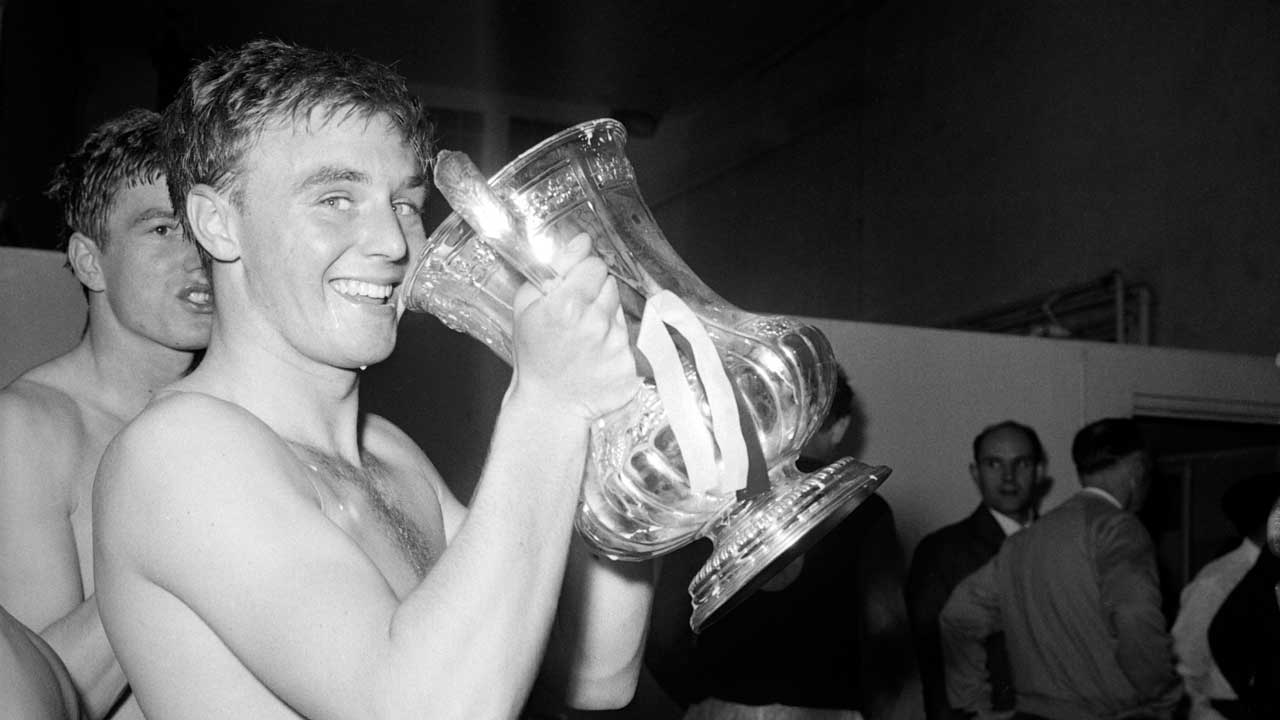
JOHN SISSONS
Aged just 18 years and nine months as he strode out at Wembley for the 1964 FA Cup final, winger John Sissons was yet another homegrown hero. The blond-haired player was spotted playing for Middlesex Schoolboys and went on to play 266 times and score 53 goals in Claret and Blue…
I made just my fourth first-team appearance in the infamous 2-8 Boxing Day 1963 defeat at home to Blackburn Rovers. We couldn’t dwell on that record loss as – cases already packed – we headed straight to Lancashire for the return fixture two days later. Despite realising things hadn’t been right, Ron made just one change – Eddie Bovington for Martin Peters – and, in an incredible turnaround, we won 3-1 at Ewood Park before going on a fantastic run, during which everything opened up for me.
I had belief in my ability and just taking each game as it came, by mid-March found myself ankle-deep in mud at rain-soaked Hillsborough, where we met Manchester United in an FA Cup semi-final that shouldn’t have been played. We were massive underdogs - United were so far ahead of us - but two-goal Ronnie Boyce stepped up to the plate in our 3-1 victory.
Apart from remembering the first whistle, though, I was almost in a trance and can’t recall too much about that Wembley final. Second-tier Preston North End went ahead on ten minutes but, within seconds - surrounded by four defenders - I equalised with a low, angled 15-yarder. Aged 18 years, 215 days, I’d just become the youngest-ever FA Cup final goal-scorer. Although Preston regained the lead, Geoff Hurst headed us level before Boycie nodded home to make it 3-2 in the dying seconds.
It’s amazing knowing you’ve scored in an FA Cup final and there were incredible scenes when we took the trophy back to the East End for the first-time in the Club’s history.
